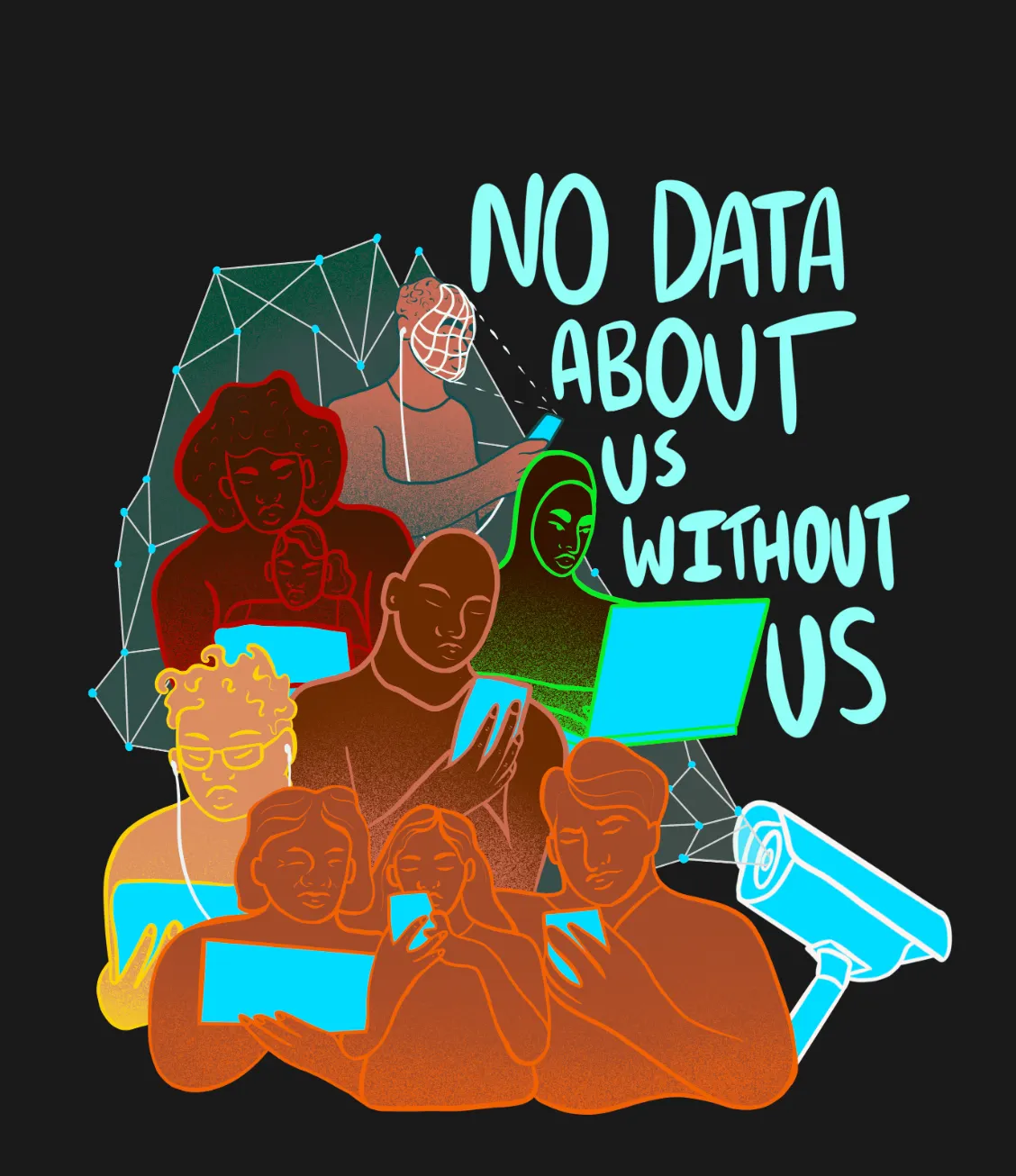Unveiling Geneva's Attitudes towards Security Cameras
Last month we asked some residents and visitors of the city about their feelings on the topics of security and surveillance in the form of a 'Vox Pop', or short interviews, that we filmed in the streets of Geneva. In the following post, we will reflect on the answers we received.

At the Edgelands Institute, we study how the digitalization of security is redefining urban social contracts. Earlier this year, we invited people to photograph, geolocate, and register security cameras in Geneva in order to create a map of the city's surveillance cameras, as part of a project titled 'Dropping the Pin on Surveillance'.
It is within this context that we set out to meet some residents and visitors of the city, in order to ask them their feelings about the topics of security and surveillance in the form of a 'Vox Pop', or short interviews, that we filmed in the streets of Geneva. (You can see the resulting video here).
Since we interviewed only 14 people, we know that this is not a representative sample. However, the fact that we were interviewing random people, who had not been briefed about these issues beforehand, brought new and interesting perspectives to the conversation, which differs greatly from the other kind of qualitative research that has been conducted by the Edgelands Institute until now.
In the following post, we will reflect on the answers we received and the potential implications on people's perceptions of security cameras, as well as how our own perceptions might have influenced the experience. We will also link these to some of the reactions Dropping the Pin received on social media, as well as some of the comments and opinions from the participants of our OPPi survey, a participatory survey we conducted last year on the topic of security in Geneva. (You can read the report here).
Methodology
In order to find a selection of people to interview for our Vox Pop, we decided to center our search around three key areas of Geneva, in the hopes of reaching a variety of participants:
- la Rue de Rive, which is a shopping street that hosts many high end stores;
- le Quartier des Pâquis, which is known for its lively atmosphere, cultural diversity and rich history; and
- la Place des Nations, which is situated next to the UN and in the heart of Geneva's international district.
We let the conversations flow and adapted our questions to the participants' answers. We wanted to know people’s opinion on four main areas: feeling of security in Geneva, use of security cameras, knowledge about security cameras and the data collected by them, and concerns on the use of that data. These are the main questions we asked:
- Do you feel safe in Geneva?
- Do you feel safer or less safe when in the range of a surveillance camera?
- Do you feel concerned by the presence of security cameras?
- How many cameras do you think we are appearing on right now?
- Do you think they are necessary?
- Do you know who these cameras belong to?
- Do you know who has access to the data from these cameras?
- Do you know where your data goes?
- Do you know your rights regarding your data?
- Do you feel concerned about the use of your data?
We interviewed a total of 14 people in the course of 11 interviews. Several factors affected who we decided to approach. Our main goal was to get a selection of a variety of people from different backgrounds, with factors being age, gender, nationality, ethnicity and residency status (whether they lived in Geneva or were visiting).
Security in Geneva
Some common themes that emerged in people's general perceptions of how safe they felt in Geneva were gender, age, location and time of the day. For example, one older woman mentioned not going out at all past a certain time of the day, and women, in general, expressed a greater sense of vulnerability when walking alone, especially at night.
”You know, the night scares everyone”
Some men also mentioned not feeling particularly worried, but understanding how others could be more vulnerable.
”Maybe a grandmother would have more to worry about than a tall guy”.
It is interesting to note that, while we were walking around looking for potential interviewees, we noticed that we might have been influenced by our own biases. For example, it was easier for us to approach single men or women in pairs than single women. Sophie's interpretation for this was that based on her own experience, she would rather not be approached by strangers in a similar situation, as being a woman alone can be a vulnerable position to be in - an opinion that we also heard from several participants.
Regarding location, most people claimed feeling relatively safe in Geneva, except in some areas considered more 'dangerous'.
“The neighborhoods next to the train station at night, I wouldn't venture there alone.”
These answers are consistent with the results of our OPPi survey, where 79.13 % of the participants said they did not fear for their security in the city. They were also invited to leave comments for each question, and when asked about this, their remarks reflected the same general feelings of overall security, with similar exceptions focused on time and place.
“Depending on the time, later is more stressful”
“I don't feel scared at all, except a little bit in the train station area”
Cameras and Security
When asked whether they thought security cameras influenced their sense of safety in the city, we received mixed responses from people. Many had never really considered the question, and others remained rather neutral or slightly positive
”I don't think it's necessarily to do with the security cameras”
”I think that if its usage is correct, yes, indeed, it can bring a stronger element of security.”
A few people claimed definitely feeling safer with security cameras.
”For reasons of safety, it doesn’t bother me at all. It’s for a good cause”
Regarding this subject, we found out in the OPPi survey that only 25.4% of the respondents would feel safer if police and government used more technology to protect them (46.23% disagreed). This suggests that a considerable number of people have reservations or concerns about relying heavily on technology for safety, while a minority of the surveyed population believes that increasing the presence of security cameras would make them feel safer.
Interestingly, one participant also mentioned the potential of cameras to create a false sense of safety.
”What I think is that with the excess of confidence cameras bring, people leave things lying around and maybe others would come and robe those things.”
Furthermore, when we inquired whether participants noticed security cameras, the results were equally mixed. While many acknowledged their growing presence, most of them couldn’t tell us where they were or even if they saw them daily. None of them knew whether they were being recorded. This reveals a certain paradox in people's attitudes towards security cameras: while some of them relate their feelings of safety to their presence, they are not aware of their location. Such responses are interesting because they highlight that people have high confidence in the use of cameras, even though they do not know where they are or how they are used.
Knowledge and Information available about Video Surveillance in Geneva
In addition to the location of surveillance cameras, we also asked people if they knew who these cameras belong to, who has access to the videos filmed by the cameras, and where those are stored. Most people had no idea who is in charge of the data collected.
”I don’t know, is it the city? The police?”
These answers are not surprising since, as we observed in Dropping the Pin, the majority of the cameras in the streets are not properly signaled, making it difficult (if not impossible) to determine who owns, processes and stores the images captured images by these cameras.
When asked about it, most agree that there should be more transparency around the use of video surveillance, and they would like to know how cameras are used and by whom.
”I think that it is interesting and important”.
However, it appears that without being prompted to think about such issues, most have tacitly accepted the increasing presence of surveillance cameras.
Some were against providing more information about the use and location of the cameras. For instance, one person stated that she would rather remain uninformed about CCTVs and surveillance, because she feared discovering something she might dislike.
”I think that that's like a double edged sword, right? I mean, it's a blessing and a curse, because once we have more information, we might become more cynical about us. And right now, personally, I feel like I wouldn't want to rock the boat because it's kind of working well for me.”
This opinion on limiting the amount of available information was also reflected on some of the comments on a Instagram post by the RTS (Radio Télévision Suisse) about Dropping The Pin. A majority of these comments were against the project because they thought that providing the locations of video cameras in the city would only benefit criminals. They stated that video cameras increased security in the city, and that providing more transparency would only jeopardize said security by giving more tools to ill-intentioned people.
Privacy Trade-off
Finally, we asked several interviewees what they thought about the use of their data collected by security cameras. There are several rights and interests related to the use of personal data such as access, data protection, and discrimination. One of the things we wanted to hear from people was which of these rights and interests came to their mind first. Interestingly, for most people these questions related exclusively to privacy.
We found once more that several people do not put a lot of thought into how the video recording of them might be used, although some recognized that the use of these recordings might be an issue.
”At the moment I don’t feel too concerned by this. But I know there is a real problem, it’s important”.
Those who had thought about this were never strongly against the use of this data, mainly because they understood this as a necessary use to enjoy security.
”It’s difficult. It’s the limit between privacy and safety”.
In this regard, we heard several interviewees claiming that they were ready to “trade off” privacy for an increased sense of security.
”I’m concerned about privacy, but let's say that someone attacked me - I would like to see security cameras catch that”.
Some of the comments on the RTS post also highlighted this trade-off between privacy and surveillance, with some of them being quite critical to mass surveillance.
Going further
This experience shed light on the fact that most people do not feel directly concerned by the use of security cameras, and surveillance technology in general. We believe it is crucial for the public to know about these subjects, because they are becoming increasingly important in today’s societies. Moreover, it could become a problem as we have observed that the use of surveillance tools is increasing and rather opaque in some cases (”As far as Geneva is concerned, however, the real digital tools used in the surveillance management of the migration issue remain unknown”). If left unchecked, the use of these surveillance tools could steadily increase, unbeknownst to the main people concerned: us, which is why it is essential to take an interest in the topic.
Since these issues are rather complex, a multifaceted approach is necessary to discuss them. Edgeland's utilization of art, research, and data highlights the effectiveness of a multidisciplinary approach in addressing such problems, revealing more intriguing outcomes compared to single-method approaches. However, it is important to note that this approach should not be confined solely to specific sectors: these issues should not be exclusive to security experts and politicians, but instead include an (informed) public in order to determine to what extent are we willing to accept surveillance.
As discussed earlier, the main question with surveillance is the trade off of some of our rights, such as the protection of our personal data and privacy, for security. In our opinion, this reveals the importance of bringing such conversations to the public; whether people disagree or not with how their data is used, it is crucial that they can make informed decisions about these topics. But in order to express an informed opinion, people need to be educated on the question, which is why we believe more transparency and access to information about the whole surveillance and security subject is more than ever necessary.
We advocate for public institutions, in collaboration with civil society, to provide this information, rather than relying on the private sector or civil society alone. This information should primarily focus on clarifying our rights, providing details about the entities responsible for the city's CCTV cameras, and, most importantly, facilitating ways to contact them and voice our opinions on this subject matter. We should let the population decide what they are willing to lose and gain, how much of their private lives they are willing to expose, who gets the right to handle their data and under what conditions.



